Why relaxation is healthy? We all know that feeling of being stressed out and overwhelmed. Maybe it’s from work, school, or personal life – whatever the case, we’ve all been there. And while a certain amount of stress can be good for us, too much of it can take a serious toll on our health. That’s why it’s important to relax and unwind every once in a while.
Most people know that relaxation is important, but they may not know why.
In fact, there are many reasons why relaxation is essential to our health – physically, emotionally, and mentally. This article will explore some of the benefits of relaxation, as well as ways to achieve a state of relaxation.
Why Relaxation Is Healthy: Physical, Emotional, And Mental Benefits
Relaxation is often thought of as a way to reduce stress, but it can offer many other health benefits as well. In fact, relaxation can have positive effects on physical, emotional, and mental health:
On a physical level, relaxation can help to lower blood pressure, improve circulation, and reduce the risk of heart disease. It can also boost the immune system, helping the body to fight off infection and illness. Moreover, relaxation can promote healing by decreasing pain and inflammation.
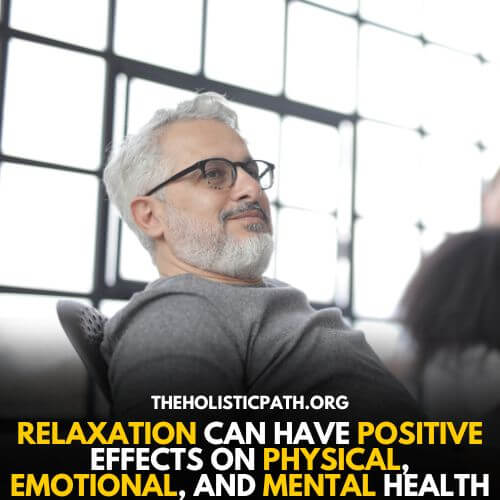
On an emotional level, relaxation can help to reduce anxiety, depression, and anger. It can also increase feelings of happiness and well-being. Furthermore, relaxation can improve sleep quality and reduce stress levels.
On a mental level, relaxation can help improve your mental health by increasing focus and concentration. Relaxing can also help increase creativity.
Overall, relaxation is beneficial for both physical, emotional, and mental health. By taking some time to relax each day, you can improve your overall health and well-being.
Relaxation Helps Combat Negative Effects Of Stress
Relaxation is often prescribed as a way to combat stress, but why is it so effective? When we’re stressed, our bodies go into “fight or flight” mode, releasing hormones like cortisol that prepare us to deal with danger.
This can be helpful in the short term, but if we’re constantly under stress, our bodies never get a chance to return to a state of rest and repair. Over time, this can lead to serious health problems, including anxiety, depression, and even heart disease.
Relaxation helps to counter the negative effects of stress by giving our bodies a chance to return to a state of rest and repair. It doesn’t have to be complicated – simply taking a few deep breaths or spending a few minutes in nature can make a big difference.
By incorporating relaxation into our daily lives, we can help reduce the harmful effects of stress and promote greater physical and emotional well-being.
Health Benefits Of Relaxation
1. Reduces Diseases:
Relaxation is important for our overall health and well-being. When stressed, our bodies go into fight-or-flight mode, which can be harmful if it becomes a chronic state.
Relaxation helps to evoke the body’s natural response to stress, which is to return to a state of calm.
Deep relaxation techniques such as yoga, meditation, and massage can help to reduce stress levels and promote a sense of well-being. Studies have shown that chronic stress is linked to a number of serious health conditions, including heart disease, cancer, and autoimmune disorders.
Therefore, by reducing our stress levels through relaxation, we can also reduce our chances of developing these chronic diseases.
2. Slow Down The Effects Of Ageing:
Everyone knows that stress is bad for you, but did you know that it can also accelerate the ageing process? When you’re stressed out, your body goes into “fight or flight” mode, releasing a surge of hormones like cortisol.
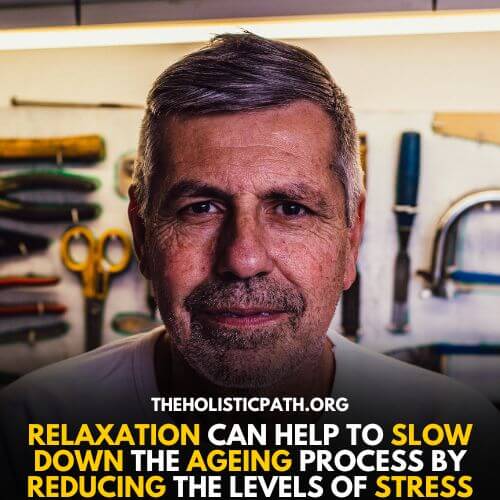
These hormones are designed to help you deal with a short-term threat, but when they’re constantly flowing, they can start to take a toll on your body. Cortisol has been linked to a wide range of health problems, from heart disease to obesity, and it can also damage collagen and elastic fibers in the skin, leading to premature wrinkles.
Fortunately, relaxation can help to slow down the ageing process by reducing the levels of stress hormones in the body. So take some time out for yourself and relax- it’s good for your health!
3. Improve mental health:
Relaxation is often underrated. We live in a world that’s always go-go-go, and it can be tough to slow down. But the benefits of relaxation are well worth it. Here are a few reasons why relaxation is good for your mental health:
- It helps to reduce stress and anxiety. When you’re constantly on the go, your body is in a constant state of stress. This can lead to anxiety, insomnia, and a whole host of other problems. Relaxation helps to counter these effects by giving your body a chance to rest and rejuvenate.
- It can boost your mood. When you’re stressed, your body produces cortisol, which is a hormone that can cause feelings of depression and anxiety. Relaxation lowers cortisol levels, which can help to improve your mood and outlook on life.
- It increases blood flow and oxygen to the brain. When you’re stressed, your body diverts blood away from the brain and towards the muscles. This can lead to fatigue and brain fog. Relaxation reverses this process, allowing the brain to get the oxygen and nutrients it needs to function at its best.
So next time you’re feeling overwhelmed, take a step back and relax. Your mind will thank you for it!
4. Reduce The Risks Of Cancer:
There are many reasons why relaxation is healthy. It can lower blood pressure, heart rate, and the level of the stress hormone cortisol. All of these factors can lead to a reduced risk of developing breast cancer.
Relaxation techniques have been shown to help reduce the risk of developing breast cancer. Here’s why:
- Relaxation helps to lower levels of stress hormones in the body, which can prevent the development of cancerous cells.
- Relaxation boosts the immune system, making it easier for the body to fight off potentially harmful cells.
- Relaxation helps to reduce inflammation throughout the body, which has been linked to an increased risk of cancer.
5. Boosts The Immune System:
Relaxation may seem like a luxury, but it’s actually an important part of keeping your body healthy. When you relax, your body is able to use its resources more efficiently, and this allows it to better fight off infection and disease.
Relaxation also helps to reduce stress levels and chronic stress that has been linked to a variety of health problems. Relaxation boosts the immune system by increasing the production of white blood cells.
White blood cells are the body’s first line of defense against illness, and so by increasing their production, relaxation helps your body to better protect itself against disease.
So why not take some time out for yourself and relax today? Your body will thank you for it in the long run.
6. Keeps The Heart Healthy:
Relaxing may not seem like it would do much for your heart, but it actually has a number of benefits. When you relax, your heart rate and blood pressure go down, and your blood vessels dilate. This increase in blood flow helps to reduce stress on your heart and lowers your risk of heart disease.
Relaxation also helps to improve digestion and reduce inflammation, both of which can contribute to a healthier heart. In addition, relaxation techniques such as deep breathing can help to increase the efficiency of your heart’s pumping action.
So if you’re looking for ways to keep your heart healthy, don’t forget the power of relaxation.
7. Helps Deal With Depression:
For people who are depressed, relaxation can provide a much-needed break from the negative thought patterns that can perpetuate their condition.
Relaxation helps reduce stress, tension headaches, anxiety, blood pressure, and the risk of heart disease. When we relax, our bodies repair themselves and we think more clearly.
Learning how to relax can be difficult, but there are many different techniques that can be effective. Some people find that listening to soothing music or reading calming literature helps them to relax. Others prefer activities like yoga or Tai Chi, which focus on slow, controlled movements and deep breathing.
Whatever method you choose, make sure to set aside some time each day to relax and recharge.
8. Improve Memory And Cognitive Functioning:
It’s no secret that relaxation can do wonders for your mental well-being. But did you know that it can also help improve your memory and cognitive functioning? Here’s why:
- Relaxation helps to reduce stress levels. When you’re stressed, your body releases cortisol, a hormone that interferes with learning and memory. By reducing your stress levels, you can help to minimize the impact of cortisol on your brain.
- Relaxation supports brain health. When you’re relaxed, your blood pressure and heart rate decrease, and blood flow to your brain increases. This increased blood flow helps to nourish and protect brain cells, which can support cognitive function.
- Relaxation boosts your mood. When you’re feeling happy and relaxed, you’re more likely to be engaged and focused. This can lead to improved performance on tasks that require memory and cognitive skills.
So next time you’re feeling forgetful or struggling to focus, take a break and relax for a few minutes. It just might help improve your memory and cognitive function!
9. Helps Staying Relaxed During Pregnancy:
Relaxing during pregnancy is healthy for both the mother and baby. It can help to ease tension and anxiety, improve sleep, and reduce stress hormones. Learning how to relax before delivery can also prepare the mother for the physically and emotionally demanding task of caring for a newborn.
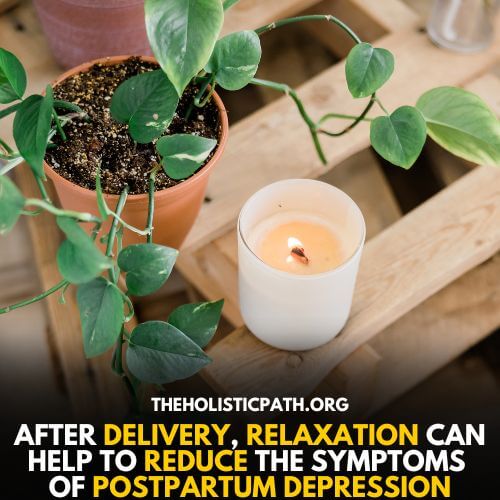
After the baby is born, relaxation can help to reduce the symptoms of postpartum depression and promote bonding with the baby. Relaxation can also help the mother to cope with the challenges of living with a baby, such as sleep deprivation and recovery from childbirth.
In addition, relaxation can help to improve bonding with the baby and reduce the risk of postpartum depression. Relaxation is a healthy habit for pregnant women and new mothers, and it is an important part of self-care.
10. Help Reduce Acne:
Relaxing may seem like the last thing you want to do when you’re trying to fight acne, but it can actually be helpful in beating breakouts. Here’s why:
- Relaxation lowers stress levels, and high-stress levels have been linked to an increase in acne flare-ups. So by taking some time to relax, you can help keep your stress levels down and your skin clear.
- Relaxation also helps to boost your immune system, which can be beneficial in fighting off acne-causing bacteria.
- When you’re relaxed, your body is better able to function optimally, including your skin. So if you’re looking for a way to help your skin heal and prevent future breakouts, relaxation may be the key.
11. Eases Falling In Love:
Relaxation is key to a healthy mind and body, so it’s no surprise that it can also help you to fall in love. When you’re relaxed, you’re more likely to be yourself and to feel comfortable in your own skin.
This confidence is attractive to others, and it can help you to form deeper, more meaningful connections. In addition, relaxation helps to reduce stress and anxiety, which can often stand in the way of romantic relationships.
So if you’re looking to find love, make sure to take some time out for yourself and relax. You may just find that the perfect partner is closer than you think.
12. Aids Decision-Making Process:
Relaxation is often thought of as a way to escape from the stress of everyday life. But did you know that relaxation can also help you make better decisions? When you’re relaxed, your mind is more open to new ideas, and you’re less likely to get caught up in emotional reactions.
When we’re relaxed, we’re more likely to tap into our intuition and gut instinct. We’re also able to see the situation more clearly and think more creatively.
Relaxation allows us to step back from our busy lives and take a different perspective. As a result, we can make better decisions about what’s really important to us. So next time you’re feeling stuck, try taking a break and see what your intuition has to say.
You may be surprised at how much easier it is to find the right solution when you’re calm and collected.
13. Helps Lose Weight:
Relaxation is often underestimated as a tool for weight loss, but it can be very effective. When we are stressed, our bodies release cortisol, which can lead to weight gain.
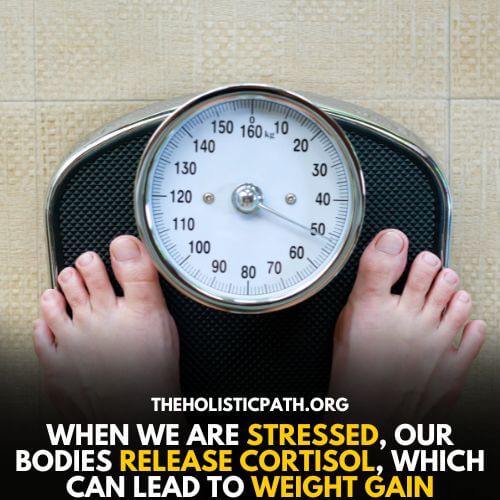
Cortisol tells the body to store fat, and it also increases appetite. So, by relaxation, we can reduce the amount of cortisol in our bodies, which can lead to weight loss. In addition, relaxation helps to reduce stress, which can help to prevent emotional eating.
When we are relaxed, we are more likely to make healthy choices and stick to our diet and exercise goals.
14. Lower The Chances Of Stroke:
Most people know that being stressed out isn’t good for their health. But what they may not realize is that relaxation is just as important for maintaining good health. Studies have shown that relaxation can help to reduce the risk of stroke. Here’s why:
- When you’re relaxed, your blood pressure and heart rate decrease. This lowers your risk of developing hypertension, which is a major risk factor for stroke.
- Relaxation also helps to reduce inflammation throughout the body. Inflammation plays a role in many chronic health conditions, including stroke.
- Being relaxed helps to improve blood flow and reduce blood clotting. This also reduces your risk of stroke.
So if you’re looking to lower your stroke risk, make sure to add relaxation to your daily routine. It’s just as important as eating healthy and exercising!
15. Increases Creativity:
Relaxation is often seen as a necessary break from the hustle and bustle of daily life, but it can also be beneficial for our creative output. When we relax, our brainwaves change from the fast-paced beta waves associated with the mental activity to the slower alpha waves that signify daydreaming and reverie.
This shift allows us to access the more intuitive and imaginative side of our brain, which is often key to coming up with new ideas. In addition, relaxation decreases stress and anxiety, which can also block creativity.
So next time you’re feeling stuck, try taking a break and see what new ideas come to mind.
16. Improves Sleep:
Sleep is essential for good health, but it can be tough to get a good night’s rest. There are a lot of things that can interfere with sleep, from stress and anxiety to physical discomfort. But one of the most important things to do if you want to improve your sleep is to relax.
- When you’re relaxed, your breathing becomes slower and deeper. This encourages the production of melatonin, a hormone that makes you feel sleepy.
- Relaxation techniques can help to clear your mind and reduce anxiety. This can make it easier to fall asleep and stay asleep throughout the night.
- Relaxation can also help to lower blood pressure and heart rate. This can lead to a deeper, more restful sleep.
17. Reduces Stress And Anxiety:
Relaxation is often underrated. We live in a fast-paced world where it’s easy to get caught up in the hustle and bustle of daily life. As a result, we often don’t take the time to relax and unwind.
However, relaxation is actually very important for our health. It helps to reduce stress and anxiety, and can even improve our overall mood. Relaxation helps by:
- Reducing the physical effects of stress on your body, like high blood pressure and muscle tension.
- Slowing down the racing thoughts that can accompany anxiety.
- Helping you to get a better night’s sleep.
- Giving you time to focus on something other than your stresses.
So why not give relaxation a try? There are many different ways to relax, from reading a book to taking a warm bath. Experiment and find what works best for you. You’ll be surprised at how much better you’ll feel after taking some time to relax.
18. Improves Breathing:
Breathing is something that we typically don’t think about – it’s an automatic process that happens without us even having to think about it. But the way we breathe can actually have a big impact on our overall health.
When we’re tense or anxious, our breathing becomes shallow and rapid, which can lead to a feeling of lightheadedness or dizziness. In contrast, when we’re relaxed, our breathing becomes slow and deep, which helps to lower our heart rate and blood pressure.
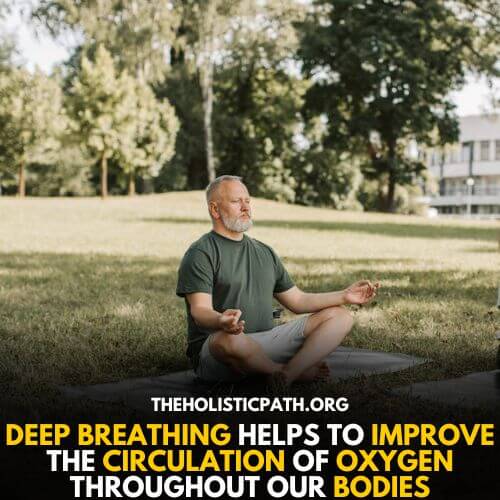
Additionally, deep breathing helps to improve the circulation of oxygen throughout our bodies, which can promote healing and reduce inflammation.
So if you’re looking for a simple way to improve your health, try taking a few minutes each day to focus on your breathing and allow your body to relax.
19. Prevents Muscle Tension And Pain:
Relaxation is one of the most important things you can do for your health. When you relax, your muscles loosen, and your body releases tension. This can lead to a reduction in pain, both from muscle tension and from other sources such as migraines and headaches.
Relaxation also helps to improve blood flow and circulation, which can prevent pain by delivering more oxygen to the muscles. In addition, relaxation helps to reduce stress, which can also lead to pain. By taking time to relax, you can help to prevent muscle tension and pain.
20. Reduces Symptoms Of Irritable Bowel Syndrome:
Relaxation is important for overall health, but it can be especially helpful if you’re struggling with a condition like irritable bowel syndrome (IBS). IBS is a chronic condition that can cause abdominal pain, bloating and diarrhea. While there’s no cure for IBS, relaxation can help to reduce symptoms.
There are a few different ways that relaxation can improve IBS symptoms. First, relaxation can help to reduce stress levels. Stress is a common trigger for IBS flare-ups, so reducing stress can help to prevent symptoms from occurring in the first place. Additionally, relaxation can help to improve digestion. When the body is relaxed, it’s able to better process food and eliminate waste. Finally, relaxation can also help to relieve pain. Pain is a common symptom of IBS, but relaxation can help to minimize discomfort.
If you’re struggling with IBS, relaxation may be able to help. There are a variety of different relaxation techniques that you can try, so experiment until you find one that works for you.
Different Ways To Relax
Relaxation is important for our overall health and well-being, yet it can be hard to unwind and let go of all the stressors in our lives. If you’re looking for ways to relax, there are a number of options available, from simple breathing exercises to more involved activities like yoga or massage. Here are a few ideas to get you started:
-Breathing exercises:
Taking a few slow, deep breaths is one of the easiest and most effective ways to instantly reduce stress. There are several different breathing techniques that you can try, so experiment to see what works best for you.
You may find it helpful to close your eyes and focus on the sensation of your breath going in and out of your body. You can also place one hand on your chest and one hand on your stomach, and focus on breathing deeply into your stomach.
Remember, the goal is to breathe slowly and evenly, letting your chest and stomach rise and fall with each breath. With practice, you should be able to achieve a state of deep relaxation.
-Yoga:
Yoga provides a simple and effective way to relax both the mind and the body. Yoga poses help to stretch and release tension from the muscles, while deep breathing encourages the body to relax.
In addition, focusing on the present moment can help to clear the mind and reduce stress. By incorporating yoga into your daily routine, you can enjoy all of the benefits of relaxation.
-Massage:
A professional massage can do wonders for your tense muscles and stressed-out mind. If you can’t afford a masseuse, ask a friend or family member to give you a quick rub-down.
-Meditation:
Meditation allows you to focus on the present moment and let go of all the thoughts and worries swirling around in your head. Even just a few minutes of meditation can lead to increased feelings of relaxation.
– Listen to calm music:
Listening to calming music or sounds of nature can be a great way to relax. There are a few reasons why this can be helpful. First, it can help to lower your heart rate and blood pressure. This is important because stress can contribute to high blood pressure and other health problems.
Additionally, relaxing can help to improve your mood and reduce anxiety. This is especially true if you listen to relaxing music on a regular basis. Finally, relaxation can help to increase focus and concentration. This can be beneficial if you have trouble focusing or if you are struggling with anxiety or depression.
– Try Aromatherapy:
Aromatherapy is a form of relaxation that uses essential oils to promote calm and well-being. The benefits of aromatherapy are well-documented, and it is a popular choice for people looking for a natural way to reduce stress and promote relaxation.
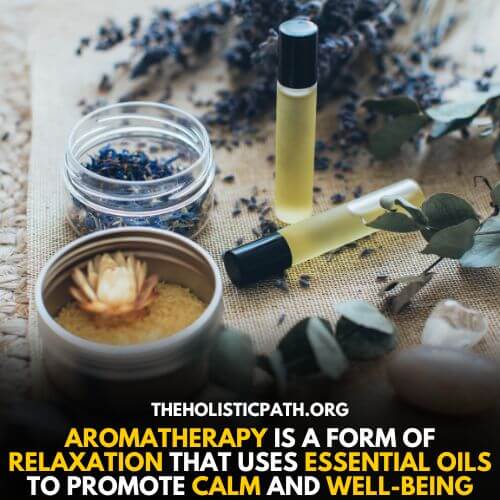
There are several different ways to use essential oils for relaxation, including diffusing them into the air, applying them topically, or inhaling them directly from the bottle. Aromatherapy works by stimulating the senses and promoting a sense of calm.
Take some time for yourself and try out one (or more!) of these relaxation techniques. Your mind and body will thank you!
You Can Create Your Own Relaxation Routine
Relaxation is important for our overall health and well-being, but it can be hard to find the time to relax. Luckily, there are a few simple things you can do to create your own relaxation routine.
Here are some tips to get started:
- Start by picking a time of day when you can consistently devote to your relaxation routine.
- Choose a place where you can relax without distractions.
- Make sure you have the necessary tools on hand such as comfortable clothes, aromatherapy, etc.
- Create a calm and relaxing atmosphere by dimming the lights or using candles.
- Play calming music or nature sounds in the background.
- Incorporate deep breathing exercises into your routine.
- Practice visualization techniques to help you relax.
- Use aromatherapy to promote relaxation.
- Drink plenty of water and avoid caffeine and alcohol before relaxing.
- Avoid working out strenuously before relaxing as it can undo all of your hard work!
Conclusion
So there you have it: a few reasons why relaxation is good for your health. Whether you take a few minutes out of your day to relax or go on a week-long vacation, taking some time for yourself can do wonders for your mind and body. So why not give it a try? You just might be surprised at how much better you feel.
